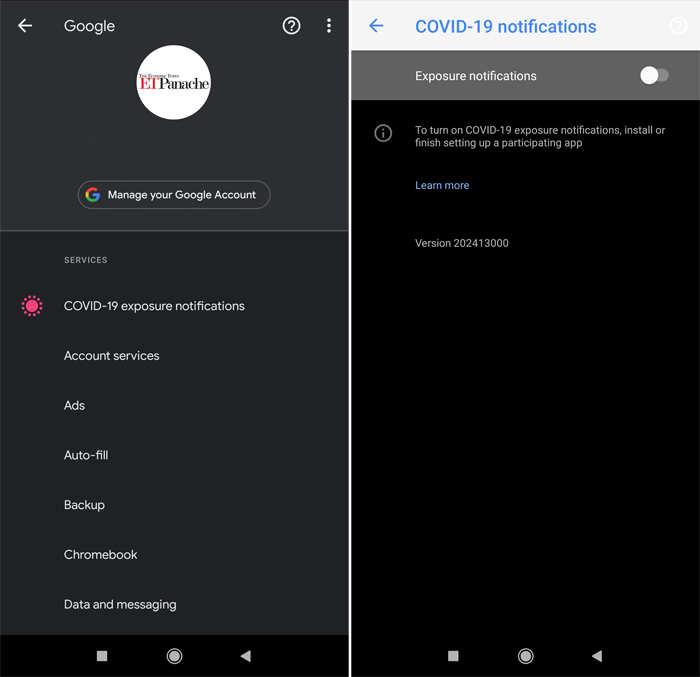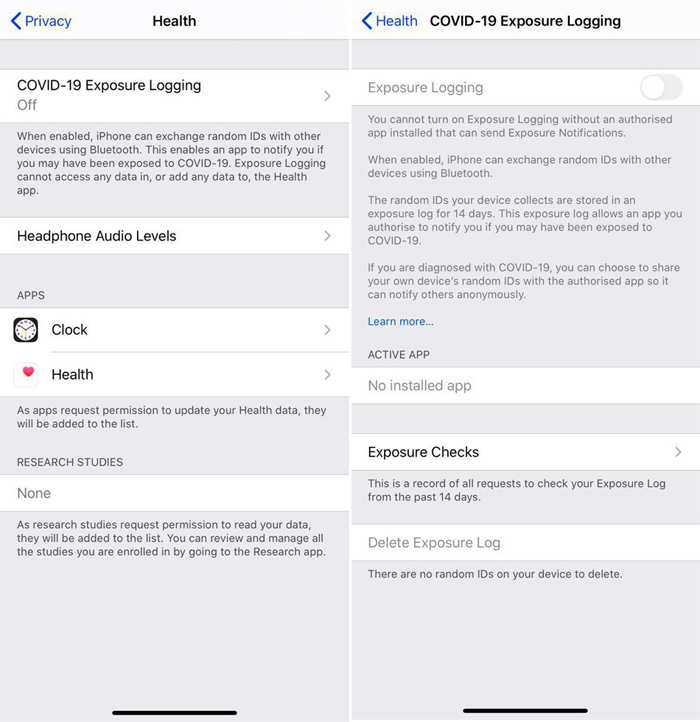NEW DELHI: Google and Apple have finally rolled out their Covid-19 exposure notification feature to all Android and iOS devices in India.
Early on Monday people woke up to a new Covid-19 feature being inserted in their smartphones, leaving them confused. Amid these uncertain times when there is enough confusion already about living the new life with the deadly coronavirus, this new tech update caused a bit of flurry in many resident WhatsApp groups after a message circulated claims that a COVID-19 exposure sensor has been installed on every single Android and iPhone device.
Agencies

Various countries like the United Kingdom and Norway have ditched their contact-tracing apps to replace them with the Apple-Google APIs (application programme interface?) to get rid of technical glitches.
We have tried to put in place an easy reckoner for those trying to make sense of the new feature that has appeared on their smartphones.
Q: How to access it?
Android: The feature will show on Android and Android-run phone devices such as OnePlus, Samsung, Xiaomi, Oppo, Vivo, among others. Go to Settings > Click on Google > The first option shows 'Covid19 Exposure Notifications'.
iPhone: Go to Settings > Privacy > Health > The first feature on top shows 'Covid-19 Exposure Logging'.
Agencies

Q: When will this feature be accessible?
According to a Times of India report, the ??tech giants had approached the Centre to link their APIs to the government-run Aarogya Setu app. However, the new feature remains disabled because it doesn't have a supporting app. ?The authorities haven't shown interest in using APIs by the tech giants. The Aarogya Setu app has an in-built contact-tracing API already. One of the reasons assumed is that the Government doesn't want to rely on these said APIs because of their stringent privacy protocols, and that may mean losing control.
Q: What is an API?
API is a tool which allows various public health authority apps like Aarogya Setu to monitor your movement and alert you of Covid-19 infections around. API does not monitor user's movement??. API doesn't allow the public health authority app to use the phone's location or track the user's location in the background. It only allows the official app to use the system.
Q: Will the Exposure Notification system protect your privacy?
If the smartphone has a public health authority app, it will let the user choose to enable the Exposure Notifications. If the user comes in contact with a COVID patient or has the virus, s/he can choose to share random IDs with that app. To ensure that the device and users’ movements are not tracked, the smartphone's random ID will change every 10-20 minutes. The random IDs are stored in the phone only for 14 days. Users can manually choose to delete the random IDs history.
Q: What happens when the random IDs are sent from user's device?
In case you have come in contact with a coronavirus patient, the app will ask the user to share his/her random IDs. The app may then check if those random IDs are stored on other people's devices as it will alert others who came in contact with you. The others won't know the user's identity.
Q: How to get started?
First and foremost, the decision to enable the feature lies with the Government. Other than that, the user needs to turn on his/her phone's Bluetooth and Location settings. These features are only enabled so that the system can scan Bluetooth signals. The system does not collect or track location.
"Android" - Google News
June 29, 2020 at 07:05PM
https://ift.tt/3icP9jK
COVID contact-tracing feature starts showing on Android and iOS devices, but it remains disabled - Economic Times
"Android" - Google News
https://ift.tt/336ZsND
https://ift.tt/2KSW0PQ
Bagikan Berita Ini














0 Response to "COVID contact-tracing feature starts showing on Android and iOS devices, but it remains disabled - Economic Times"
Post a Comment